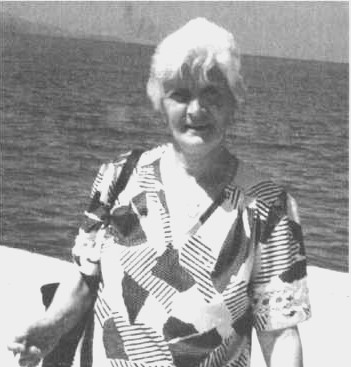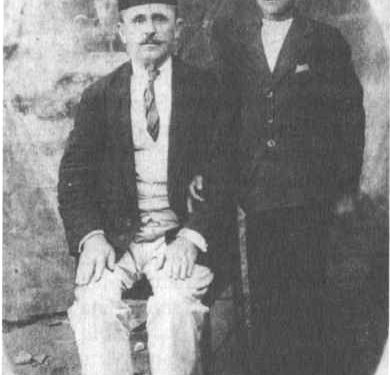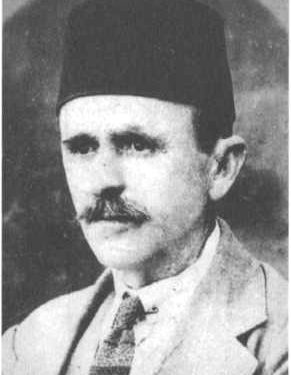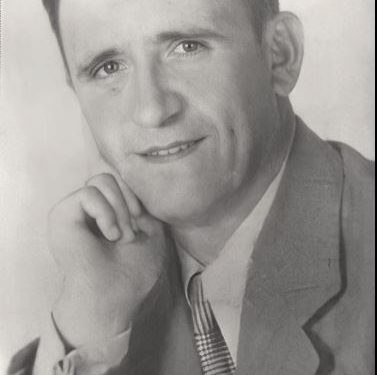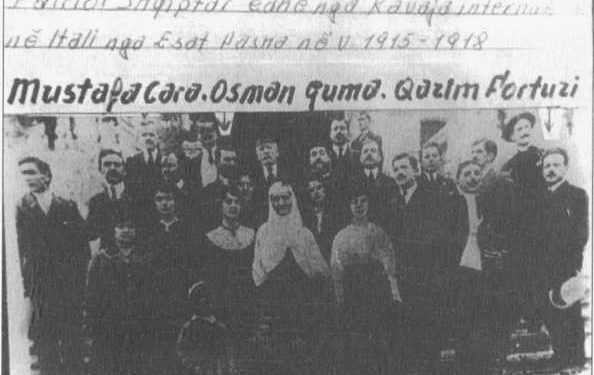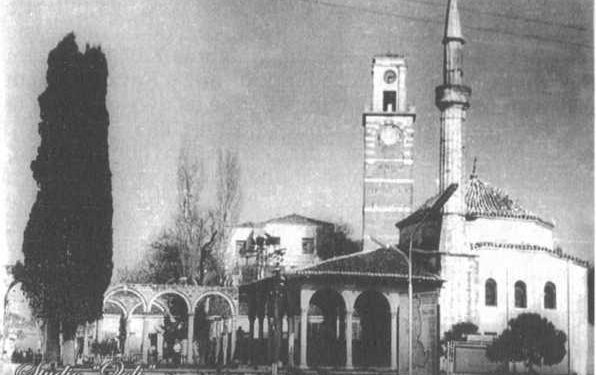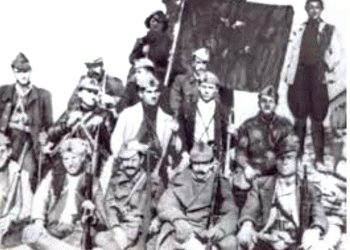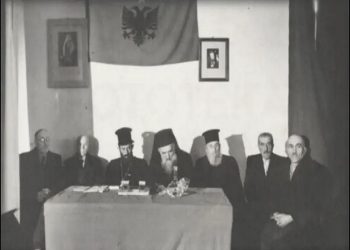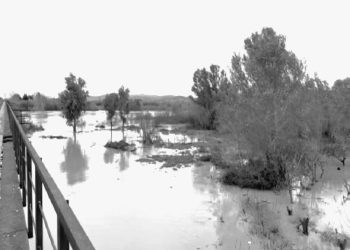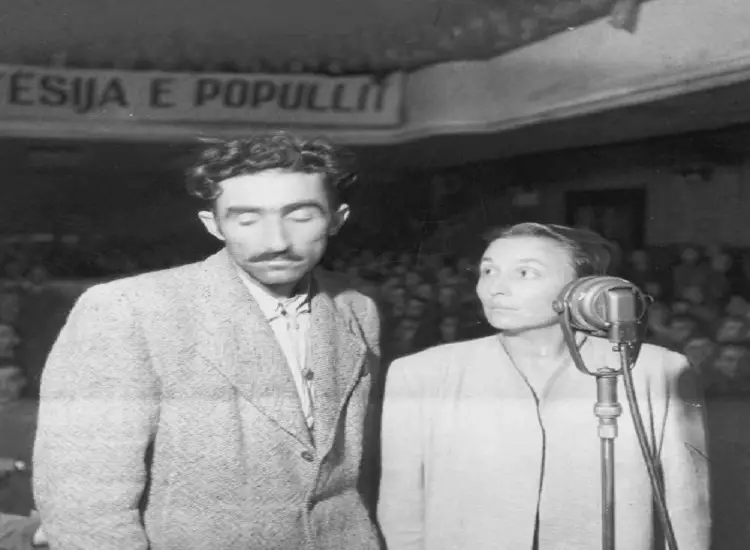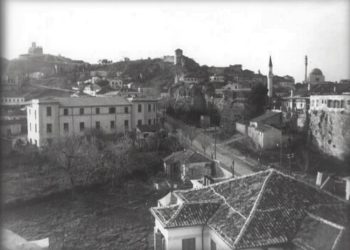By Sofika Prifti Cara
Part One
To Forgive…!– The old Kavajë family – CARA
Memorie.al publishes several excerpts from the book ‘To Forgive’, by author Ms. Sofika Prifti (Cara), published by the Institute for the Study of Communist Crimes and Consequences in Tirana, in which the author has described in detail and with professional competence, the history of one of the most famous families, not only in the city of Kavajë, but also wider, the Cara family, which produced not only distinguished patriots who contributed to the national cause and the freedom of Albania, but also well-known intellectuals, graduated in the West, who later returned to the homeland, contributing in several fields of science and life. But even though the scions of the Cara family dedicated their lives to the national cause, after the communists came to power at the end of 1944, they would be persecuted, imprisoned, and interned, and the fierce class struggle would pursue them until 1990, when the collapse of the communist regime began.
PREFACE
Everyone in our city, who experienced the powerful flame of the anti-communist movement here, in the unforgettable years 1990-1991, surely noticed, among the few women in the front rows, a woman with a graceful figure, middle-aged, but with beautiful and completely gray hair, as if covered with snowflakes. She was right at the head of the demonstrators, unfazed by the communist terror. Hatred for the dictatorial regime was clearly written on her forehead, while the future with rainbow colors was evident in her eyes. She shouted with all the power of her voice, in the great chorus of popular hatred: “Freedom-democracy! Down with the dictatorship!” etc.
It was Sofika Cara. Everything Sofika has written in these pages, like a long story, are memories and impressions that can never be forgotten! She is the daughter of a middle-class family in Fier, but her marriage to Bardhi in 1961 caused her “merciless” break from her parental roots, not to meet her blood relatives for more than three decades (!!). It was a time of great paradoxes.
And all this severe misfortune came upon her only because Bardhi came from an honest Kavajë family, with a nationalist base; his father had fled after the end of the Second World War, first to Italy and then to distant Australia, where he died in 1982. In all those difficult years, she and her family experienced an unquenchable pain and longing, which gave them the strength to survive and look forward to a new era.
Sofika, this woman with a strong character, even though persecuted, never lost hope, because, as is known, hope dies last in man. Deep faith in God gave and gives her the courage to face all the challenges of life, all the suffering served up by that hateful communist regime, with the strength of a lioness.
With two small children, elderly people at home, and a sick brother-in-law, this strong woman had to play two roles at home, not only as the woman she was but also as the man. She had to work like a “horse” and traverse Albania far and wide, because besides the family, she also had to support her husband, Bardhi, in prison.
All these experiences, throughout the pages of this book, Sofika has given as in a warm conversation with her dearest people, because only she knows how much she has suffered, so I think you will surely read them with curiosity and pain.
Even with Bardhi’s release from prison, Sofika recalls, the Calvary of their suffering did not end, but it became heavier. The secret eye of the State Security surrounded them everywhere. People avoided them out of fear. Bardhi, along with his brother, Sabriu, besides prison, had been marked on the black list for physical elimination. It was the last quarter of the 80s, the last years of communist rule in Albania, and the dictatorship had become savage, exactly like a wounded wild boar.
To escape this heartless punishment, Bardhi, along with his brother, Xhevdeti, judged it right to leave Fier and settled in Kavajë, where they were born and had their family origins, with the well-known Cara family here. They came to Kavajë shortly before the “Pearl with its stones” erupted, that’s what Sofika calls Kavajë and the people of this democratic city, which first and forever killed the fear in the minds of Albanians and ignited throughout Albania, the great flame of the anti-communist movement, which would bring the inevitable end of the communist political system among us.
Sofika’s book is written naturally, with sincerity, with feeling, and does not simply express a pride and respect for the Cara family, or for her family there in Fier, where she came from, but is filled with deep love and respect for the people, for the people of Kavajë, who are as hospitable and warm-hearted, as they are brave, hardworking, and democratic in spirit.
These living fragments of life that this author gives us in the book, remind us of that tireless mason, who, brick by brick, erects a building, small or large. This author, with great simplicity, places some bricks in the great building of the history of this old city. The work of Sofika Cara, who brought us this book, is a modest but very valuable contribution, so I think it should also be welcomed and appreciated with the eye of an honest fellow citizen.
Ramazan Hushi
SOME DATA ABOUT THE CARA FAMILY
According to the history provided to us, three large roads, among several smaller ones, constituted the skeleton of the city of Kavajë. It was precisely here that several families of the Cara tribe came to live and work many centuries ago, in a large and fertile field. The roads and alleys here did not have names, but even so, anonymous, the inhabitants could not leave them for long. Because cities and their roads are like living beings, they absolutely need their names. And these names arose according to the place where they were spread: for example, from the object “Guri i Sharrës” (Saw Stone), in the southern part of the city, the neighborhood was called “Sharrë”; the place where the people of the Cara family settled, which was called “Skuraj,” was called the “Skuraj” neighborhood, today named “Zguraj”; while the neighborhood where the bey had his properties was named “Sallbeg”, etc.
But I do not intend to dwell on the names of the roads and alleys, because others have written extensively about them. My goal is to stop and highlight here a very large and old family, the Cara family, which has its roots in Skuraj of Mirdita.
It must be said that the Cara family in Kavajë is an old family, but not autochthonous. The people of this family are thought to have come a very long time ago from the northern village of Skuraj, where even today this surname is borne by residents of two religious faiths, linked to the invaders who conquered this area at different times: Muslims and Catholics, who live in harmony with each other, thus distinguishing themselves as a large and reputable family throughout Mirdita.
In Kavajë they took root well with work, multiplied in number, and quickly became owners, as a large feudal family, around the year 1250, staying not only in the coastal lowlands but then spreading to all regions of Albania. The family of this tribe managed to create strong ties and friendships around 1350, coming under the rule of Tanush Topia.
But after the death of Gjergj Topia, the Caras, according to the narratives that have come to us from the older generations, went their separate ways. Among the first of the Caras, Shqefën Cara is mentioned, who had his two sons, Pjetër and Mark Cara. Later, the branches of this family spread to Tirana, Durrës, Laç, Ndroq, and Fier, etc.
But the largest branch of this great tribal tree has flourished in Kavajë. The Caras here, descending from the highlands, which, apart from cold water and clean air, had only poverty, judged it right to settle in a large field, which they would work and thus secure a living. The inhabitants of the neighborhood named the field and the alley where they lived Cara, and even today this settlement is called “Cara Street” (Rruga e Carajve). Years passed. Agriculture, livestock, and trade became their source of life, and thus, through tireless work, the Caras made a name for themselves. Their family grew very large, spread to other neighborhoods of the city, and in our day, it is one of the largest families in the city, located in the heart of Albania.
Since very early times, many people with values have emerged from the hearths of the Cara family, patriotic people who, besides work, wanted to see their country free and beautiful. From this family, at different times, when the interest of the country demanded it, volunteers took part with weapons in hand, to protect the ancestors’ lands from foreign fragmentation.
Thus, for example, history testifies that about 650 men from Kavajë participated as fighters in the Shkodra War in 1913, to protect the Albanian territories in Shkodër, Plav, and Guci, from the Serb-Montenegrin attacks, where 20 men were from the Cara family, among them, Bardhi’s grandfather, Islam Cara, but also Isa Cara, Hamdi Cara, etc. Furthermore, in this war, Isa Cara fell heroically. We also mention here that Dervish Cara took part in the war in Macedonia and was one of the main figures there. He is known in history when the great uprising broke out in the region of Polog, in the years 1843-1844, which was called the “Uprising of Dervish Cara”. Together with Dervish Kapo, Dervish Pola, at the head of this uprising, they set up their headquarters in the famous Harabat Teqe, in Tetovë, Macedonia.
Dervish Cara had family ties with the pashas of the Tetovë Pashalik. The aim of the uprising was against the Tanzimat reforms for the preservation of the identity of the Albanian people, for the preservation of the Albanian language, tradition, bravery, and the authority of the pashas in their own provinces. The Cara family took an active part in the struggle and efforts for the declaration of Albania’s Independence.
Together with other residents of our city, people of this family also helped to escort the elderly Ismail Qemali to Vlorë, on November 23, 1912, and this ardent patriot then raised the red and black flag in the Lab city on November 28, 1912, and declared Albania independent. There were many men from Kavajë who escorted Ismail Qemali to Çermë, such as Mustafa Cara, Qazim Merhori, Bajram Xhani, and many others, while Bardhi’s grandfather, Islam, escorted him to Çermë.
The people of the Cara family engaged extensively in trade and thus also went abroad, to Italy, Austria, Turkey, and Australia; two of Xha Lamit’s brothers and their children remained in Turkey forever, and their children live in this friendly country even today.
The above data were obtained by leafing through the history of the city of Kavajë, as well as from the family archive, in cooperation with Lulzim Cara, the father of the martyr of Albanian democracy, Indrit Cara.
Ali Vishka: “The Harabat Teqe of Tetovë and its historical and cultural role in the past”. Dr. Aleksandër Matkovski: “The Uprising of Dervish Cara – Skopje 1985, p. 101-127.
MUSTAFA CARA
The Cara family has produced people who loved school and studied abroad, but also deeply cherished the democratization of their country. Thus, we know that Mustafa Cara had finished the Commercial School in Turkey and was then appointed as a teacher in Kavajë. Mustafa had strong ties with Ismail Qemali, Çerçis Topulli, Sulejman Delvina, Bajram Xhani, Andrea Ekonomi, Hoxhë Leçini, as well as many friends and well-wishers.
In 1920, Mustafa Cara participated in the Congress of Lushnjë and later in Tirana, where the Radical Democratic Party was created in October 1921. After two months, this patriotic man founded the branch of this party in Kavajë. Mustafa Cara was the one who raised the flag in Kavajë on November 27, 1912, precisely on the balcony of his house, clearly demonstrating the unlimited support that the people of our city gave to the great cause of the declaration of national independence. Even today, this beautiful tradition of raising the national flag in Kavajë continues on this date. He hated the fierce communist system with all the strength of his soul, as a system of injustices, the denial of freedom of speech, poverty, which had left the Albanian people in darkness and the country in deep backwardness.
Mustafa Cara did a lot for his homeland; for these reasons, the communist regime had decorated him with the certificate: “Outstanding and determined Patriot for the national cause”. With the coming of democracy, his name and deeds were raised to the pedestal of honor. For special merits, for “Freedom and Democracy”, the then-President of Albania, Dr. Prof. Sali Berisha decorated him with the order; “Outstanding and Determined Patriot” against communism, “For Patriotic Activity for the Nation”, with the second-class Medal, etc. The Municipality of Kavajë, together with the municipal council, have valued and declared Mustafa Cara; “Honorary Citizen” of Kavajë, posthumously, for valuable contributions to the national cause. Mustafa Cara passed away in 1955, at the age of 88. He was escorted to his final resting place with great honor and respect by his fellow citizens.
DEMIR CARA
The Cara family has produced capable men for the country, intellectuals with sharp minds and visionaries for the better future of Albania. One of these was Demir Cara, who is the honor and pride of Kavajë and the nation for us. Demir Cara went to Austria for studies at a very young age, but he grew up and was formed there far away, with the passion of longing and unquenched love for his homeland and birthplace. In Austria he became a very capable doctor, skillfully earned titles and was known as; Dr. Prof. Demir Cara, but, at the same time, he was also formed as an ardent patriot of our national cause.
For his undisputed values and merits, he was elected the chairman of the “ALBANIA” Association, founded by Albanian students studying in Austria, where, among others, were Et’hem Cara, Andrea Tirana, Aleks and Mihal Buda, etc. Dr. Prof. Demiri, as a patriot and statesman, but also as a doctor, helped many Albanians who went there, helped them materially, hosted and escorted with honors many of his compatriots, from the simplest people to those with high state positions and duties, he hosted the State Ensemble of Folk Songs and Dances of Albania in Austria, at the world festival held in Vienna in 1958, an event where our group took first place and won the “Gold Necklace”. For this beautiful event, in honor of Albanian art, he also hosted a magnificent banquet. There were a few years when he came to Albania very often, to Kavajë and everywhere he was received with great respect. As a sign of gratitude, the Albanian state at that time donated a cardiology machine for the heart to him. When he came to Tirana and Kavajë, Doctor Demiri offered free visits and consultations for Albanian citizens. He was always interested in expanding and strengthening political, economic, and cultural relations between the two countries, Albania and Austria. I emphasize here a very meaningful detail: Dr. Prof. Demir Cara, in his identity document in Austria, held Albanian citizenship.
Dr. Prof. Demiri Cara died on September 15, 1991, at the age of 84, in Vienna, among friends and people who sincerely loved, appreciated, and respected him always. That man of virtues left this life without enjoying the new time of democracy that came to Albania, a time for which he had given, with all his energies, everything he had. The only will he left was: to be buried in his beloved birthplace, in Kavajë. And so it happened; his lifeless body was brought and buried, according to his will, in his hometown, with great honors and respect, as befits a man with a white heart, and the attendance at the funeral was very large.
ET’HEM CARA
Et’hem Cara was born in Kavajë and completed his first lessons in his hometown, and then pursued and finished his higher studies at the Commercial Academy in Linz, Austria, while his brother Myftar Cara continued and finished his studies at the University of Bucharest in Romania. Et’hemi finished his higher studies with very good results, distinguished himself as a man with rare professional abilities and quickly earned the high scientific title “Doctor” of the Commercial Academy. Et’hemi had also become a member of the patriotic Association “ALBANIA” in Austria.
When he came to Albania, he was initially appointed to work in Elbasan. During this time, he married a Kosovar girl, Zyla, from a noble family with a name in Gjakovë, the Karkini family, who had come to Kavajë in 1928. Around the middle of 1932, he was appointed to a position in Tirana, as head of finance at the Ministry of Education.
In the years 1932-1944, Et’hem Cara created numerous ties with intellectual people who had progressive ideas for the future of the country; he was lucky enough to meet and work with well-known figures of the time, such as; Hilë Mosi, Nush Bushati, Rexhep Krasniqi, Eqrem Çabej, etc. From continuous contact with these figures, he benefited a lot, thus forming his complete portrait as an honest intellectual and patriot, and all of them worked and made efforts with a high spirit of patriotism, to fanatically preserve the country’s political independence.
It was precisely this acquaintance of his with such intellectuals with democratic tendencies that made him manifest his special intellect, professional abilities, and also his deep insight in the political evaluations of the time. Thus, he secured a high reputation for himself, so that everyone honored him, and his close friends even called him by the epithet “SOCRATES”. Doctor Et’hem Cara, being elected, was a deputy of that time from 1940-1944, for Durrës and Kavajë.
In the years when German military forces were in Albania, but also in Kavajë, he kept his dignity as a patriot spotless, working honestly and patriotically, to serve his people with all possibilities. Thus, it is appropriate to mention here the fact that Et’hem Cara, with the authority of a deputy, once intervened with the German SS command, becoming the protagonist of the release from isolation of many men from Kavajë, who had been captured by the Germans as people with communist views. They had gathered them in the bey’s mansions in Kavajë and from there they would send them to concentration camps in Germany, Austria, etc., to exterminate or burn them.
For this issue, which was as humane as it was patriotic, Et’hemi guaranteed his children to the German SS commander, telling them that the people of Kavajë are not communists, but have strong nationalist convictions. The German commander, hearing that he spoke the German language so beautifully and fluently, was surprised and softened. Convinced by Et’hem Cara’s words, after asking him a few questions, he gave the order to release all the arrested. That was a special event, a day of joy in all Kavajë families. Even today, those who knew or know about this man remember Doctor Et’hem with special honor and gratitude. In September-October 1944, when German military forces were still in the country, Et’hem Cara was offered the high post of Minister of Finance, in the government led by Ibrahim Biçaku.
He accepted this duty. A good purpose compels honest people. He worked with dedication and professional skill, and, moreover, for his good work, he is valued as a “Technical Expert”. At that time, for Doctor Et’hem, those were the most difficult days. He very carefully attached importance to the preservation of the monetary treasury in the State Bank. Wisely assessing the dangers that threatened our national economy, he had to block all outflows of the treasury. He, with rare courage and bravery, faced the threats of the German commander, who insisted on taking the Albanian treasury with him when he was leaving. But Minister Et’hem Cara objected and replied that; Albanian finances are poor and have no money. The German commander insisted and blackmailed him, threatening his wife, Zyla, and his four young sons: Betimi, Agimi, Astriti, and Kaçi, with execution if they did not hand over the treasury. Et’hem Cara replied decisively: “I love my wife and children, they are the light of my eyes, but I will not violate the interests of my country, you do your job!” Memorie.al




